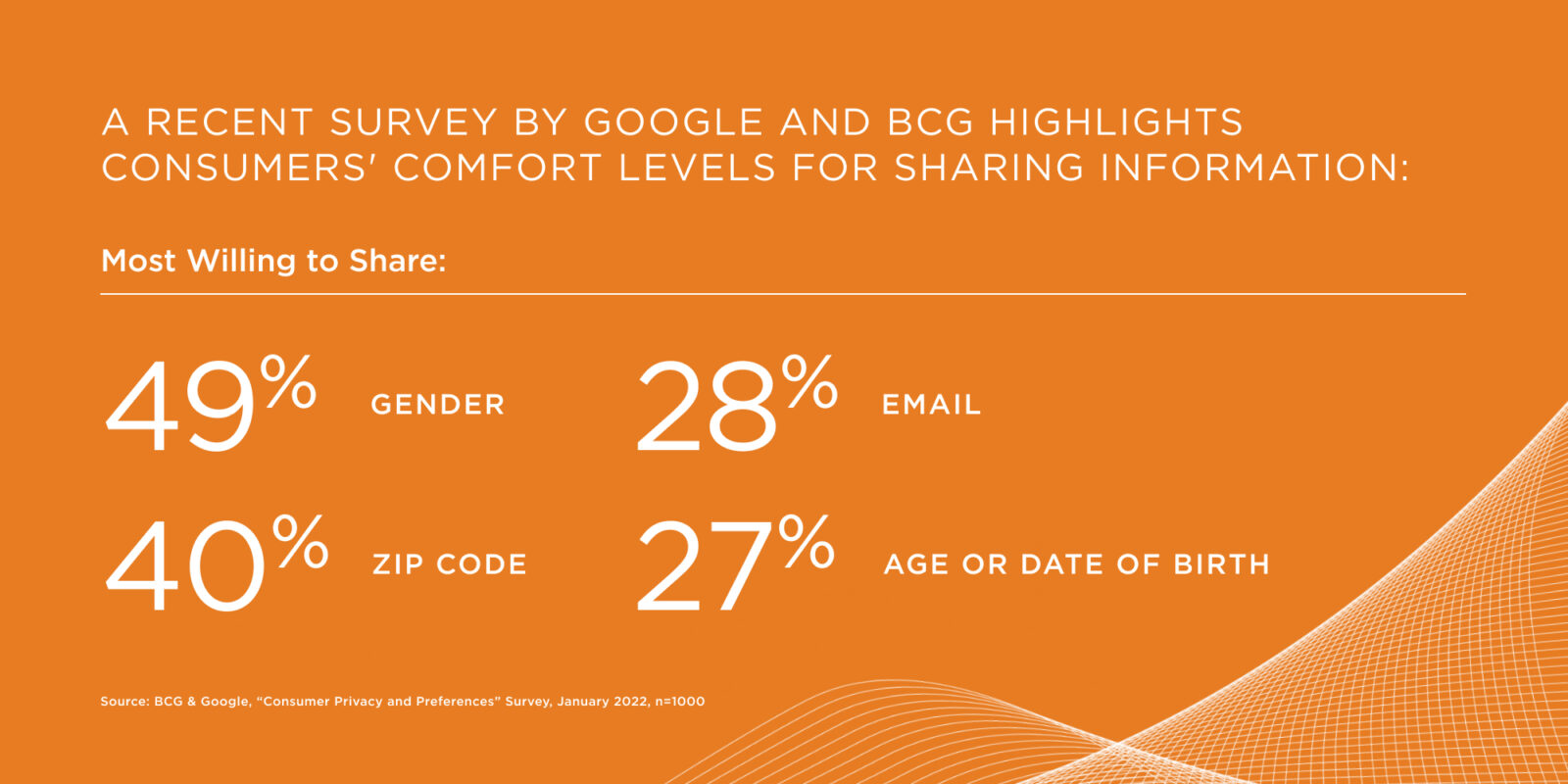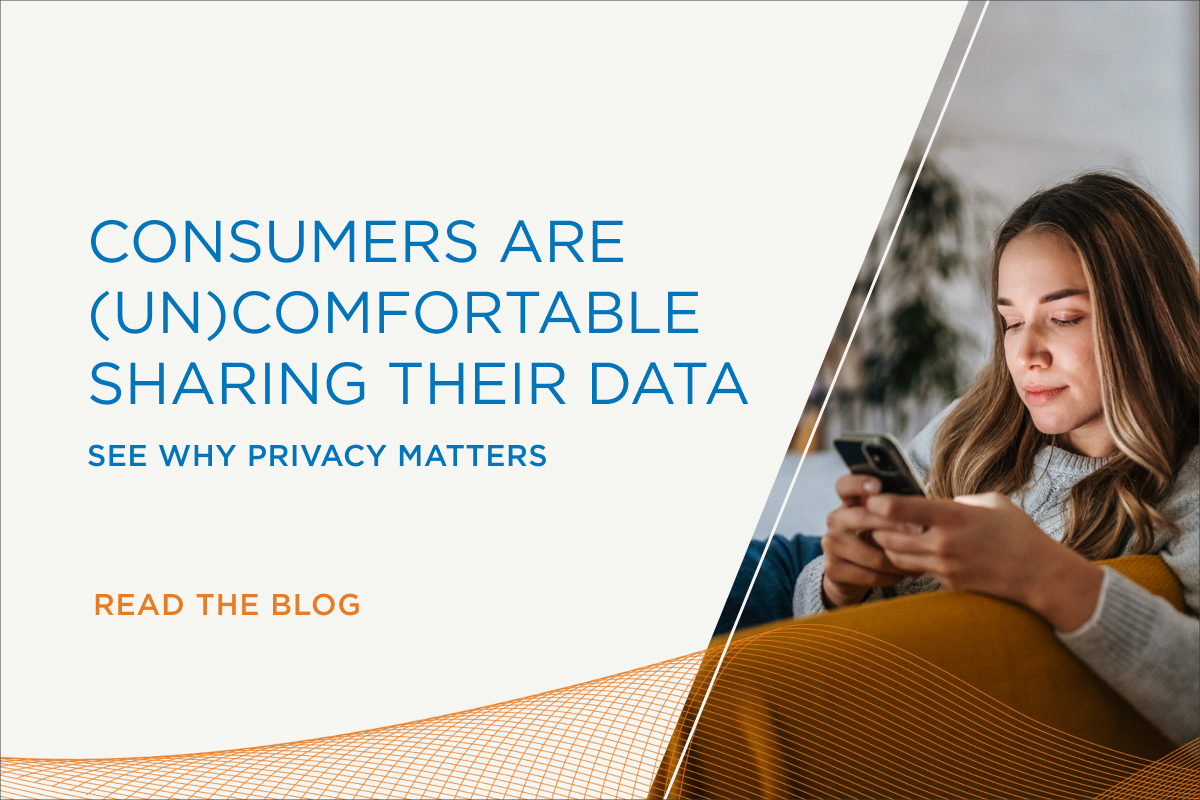- The bond between consumers and brands in the knowledge-based commerce era is deeply rooted in trust, reinforced by transparency and control over data.
- A recent survey shows varying consumer comfort levels with sharing different types of data, emphasizing the need for brands to clarify data usage purposes and offer real benefits.
- For a trustworthy brand-consumer relationship, companies should prioritize consumer data rights, ensure transparency at all touchpoints, and protect the data they collect.
In today’s world of knowledge-based commerce, the bond between consumers and brands hinges heavily on trust. As the landscape of data collection continues to evolve, the foundation for trust remains deeply rooted in two age-old principles: transparency and control.
Yet, these principles alone aren’t enough. Trust is cultivated not just by embodying these principles, but also by how we put them into practice. So, how do we foster this trust? It’s through our careful and consistent approach to privacy.
Consumers expect and deserve the right to control their data. In fact, in certain circumstances, they are guaranteed that right by law. Ensuring they’re not blindsided by unexpected data sharing or excessive marketing communications is crucial for building trust. As highlighted by the Harvard Business Review, “Trust enhances the positive effects of using personal information.” In this context, transparency is not just a buzzword, it’s an obligation.
UNDERSTANDING CONSUMER PREFERENCES
Consumers want to remain informed and in control of the data that brands collect from them. It’s not just about gathering data; it’s about the rationale behind it and the value the consumer gains.
With the increasing emphasis on first-party data, as discussed in our recent blog, “First-Party Data: How to Avoid Common Pitfalls,” companies need to ensure they’re maintaining the quality and health of this data for a seamless customer experience. As brands dive into this area, three pivotal questions emerge:
What data is being collected? It’s essential to be transparent about the type of data being sought from consumers, as their willingness to share varies based on the information requested.
A recent survey by Google and BCG highlights consumers’ comfort levels for sharing information. Not surprisingly, consumers are more willing to share data more relevant to marketing, such as zip code and email and less willing to share data of a more personal nature such as recorded conversations.

Why is the data being collected? The purpose matters. Brands should make it clear to consumers if data will be utilized for enhancing user experience, recommending products, or for marketing efforts.
What’s in it for the consumer? While many people often lean toward cost-saving benefits like free shipping or discounts rather than exclusive access, there are still some consumers who appreciate non-tangible rewards like early access to products, the opportunity to provide feedback, or insights into what’s coming from the brand. It’s a testament to the diverse expectations of consumers in today’s data-driven marketplace.
BUILDING A CULTURE OF CONSUMER PRIVACY
The days of unrestricted data access and use are over. Today, companies must champion transparency and control for consumers while supporting operational agility. Every brand should ask themselves, “Are we adhering to data privacy standards and investing in an approach to privacy that sustains trust?”
Bringing in the Right Partners
Brands must be eagle-eyed about their data practices, including those of their partners. One important consideration is ensuring a deeper understanding of a partner’s commitment to compliance.
3 Concrete Steps Companies Can Take Toward a Privacy-Centric Culture
- Data Minimization: Restrict data collection to only what is necessary for the services provided and retain data only for as long as is necessary for those services or to meet legal requirements.
- Proper Security: Ensure a robust team of security professionals who are actively engaged in operations and product development.
- Employee Training: Cultivate a privacy- and security-conscious culture through frequent discussion, required but engaging training, and emphasis on everyone doing their part
In the effort to build a robust culture of privacy, collaboration is key. It’s often beneficial to enlist the expertise of trusted partners who can guide and support this transformative process. Therefore, it’s vital for companies to make informed choices about their collaborators. Remember, the right partner can be a game-changer, and at Vericast, we’re committed to championing this cause alongside you.
At Vericast, we are committed to trust, transparency, and security. We empower businesses with insightful customer data, fostering growth, and forging deeper business-to-people connections. With a foundation in cutting-edge technology and data-centric strategies, Vericast is a trusted partner for over 15,000 companies, delivering precision, scale, and a passionate commitment to excellence.
Empower Your Brand With Knowledge From Vericast
Want to strengthen your understanding of data-driven strategies even further? Read our insightful blogs: “Respecting Privacy: Three Vital Principles for Zero & First-Party Data Usage” and “Tackling Data Challenges: How Marketers Can Optimize Data Usage and Drive Success.”
For those interested in diving deeper, our white paper “Why First-Party Data Matters: Personalization, Privacy, and Growth” is a must read. And for a quick visual snapshot, download our infographic, “Amplify Performance Metrics Through First-Party Data Strategies.”
